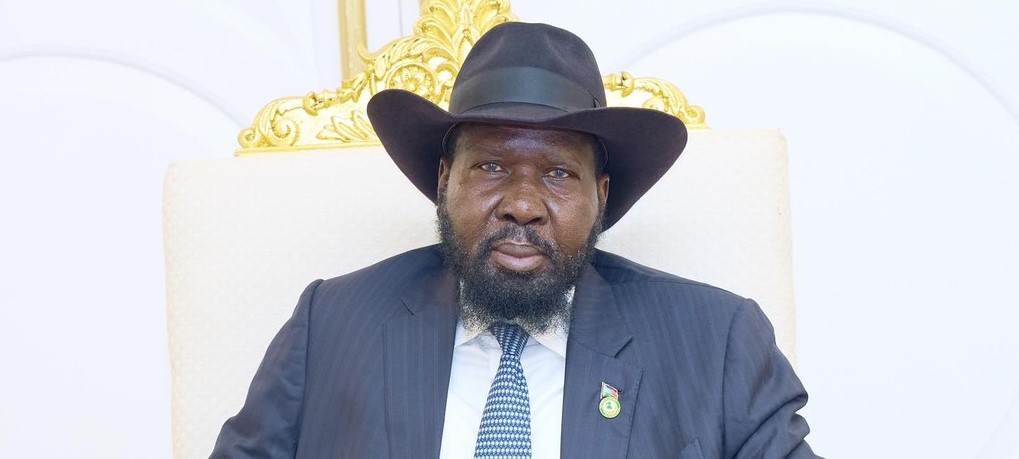In a twist of events, President Salva Kiir reconstituted the High-Level Ad Hoc Committee on the Implementation of the Revitalized Agreement on the Resolution of the Conflict in South Sudan (R-ARCSS) on Wednesday night.
In a Republican Order read on the state-owned South Sudan Broadcasting Corporation (SSBC), Kiir appointed 31 members from various political parties and stakeholders.
Senior Presidential Advisor Gen. Kuol Manyang Juuk of the SPLM is the chairperson of the new body and will be deputized by Lasuba Ludoru Wongo of the SPLM-IO. At the same time, Dr. Martin Elia Lomuro of the National Agenda was named Secretary General.
The other members are:
1. Michael Makuel Lueth, SPLM – Member
2. Simon Kun Puoch, SPLM – Member
3. Bol Makueng Yol, SPLM – Member
4. Abuk Jervas Makuac, SPLM – Member
5. Joseph Geng Akec, SPLM – Member
6. John Oryem Ernest, SPLM – Member
7. Dr. Nadia Arop Dudi, SPLM – Member
8. Dr. Santino Ayuel Longar, SPLM – Member
9. Taban Luka Guya, National Agenda – Member
10. Joseph Malek Arop, National Agenda – Member
11. Agnes Poni Lukudu, National Agenda – Member
12. Dhoruai Mabor Teny, National Agenda – Member
13. Onyoti Adigo Nyikwec, Democratic Change – Member
14. Suhile Deng Adam, Democratic Change – Member
15. Dr. Lam Akol Ajawin, SSOA – Member
16. Julius Tabuley Daniel, SSOA – Member
17. Michael Ayuen Johnson, SSOA – Member
18. Agok Makur Kur, SPLM-IO – Member
19. Sarah Cleto Rial, SPLM-IO – Member
20. Yar Telar Ring Deng, SPLM-IO – Member
22. John Barayona Furula, SPLM-IO – Member
22. Bol Jock Jek, SPLM-IO – Member
23. Isaiah Hakim Garang, FDs – Member
24. Albino Akol Atak, OPP – Member
25. Richard Omwong Valent, OPP – Member
26. Majok Mading Dier, OPP – Member
27. Mayen Jeremiah Turic, OPP – Member
28. William Lochi, Deputy Secretary General of Government – Secretariat
The committee’s mandate includes:
1. Oversight of Peace Deal Implementation: Ensure the effective implementation of all chapters of the R-ARCSS except Chapter Two (transitional security arrangements).
2. Coordination for Elections: Work closely with the Electoral Commission, RJMEC, and political parties to address disagreements and ensure timely elections by December 2026.
3. Stakeholder Engagement: Engage with parties to the agreement, including regional and international partners and governments.
4. Resource Mobilization: Collaborate with the Ministry of Finance and international partners to secure funding for implementation activities.
5. Other Assigned Tasks: Carry out any other responsibilities assigned by the Presidency.
Implications
It was not explicitly stated in the order if the new committee assumes the role of the National Transitional Committee (NTC), which is mandated to superintend the implementation of the 2018 revitalized peace agreement. The NTC was reconstituted in January and has eleven members, chaired by Senior Presidential Advisor Gen. Kuol Manyang.
It is important to note that in President Kiir’s latest move, he excluded SPLM/A-IO members who are loyal to First Vice President Dr. Riek Machar, who is under house arrest. Most of the SPLM-IO members appointed to the new committee are loyal to a faction of the party led by the self-styled interim chairperson, Stephen Par Kuol, who is also the national peacebuilding minister. Machar loyalists, however, repudiated Par and accused him of orchestrating a coup against Machar and working in cahoots with Kiir to dismantle the implementation of the peace agreement.
Machar was confined on 26 March following the killing of Gen. David Majur Dak and 27 of his bodyguards during a botched UN operation to evacuate him from Nasir Town in Upper Nile State on 7 March after the White Army, an outfit comprised of armed Nuer youth, overran the town. President Kiir and the SSPDF contend that Dr. Machar and his loyalists coordinated the attack on Nasir and locked the latter and leading members of his SPLM/A-IO up to date.
Reacting to the new development, civil society activist and Executive Director of the Community Empowerment for Progress Organization (CEPO), urged the parties to the peace agreement to genuinely work for the country’s transition from violence to peace and democracy.
“The spirit of undermining the aims of the R-ARCSS and playing around with it is risky, and a serious demonstration of political will and commitment for delivering the pending tasks of the R-ARCSS is required,” he stated. “Downplaying the required expectations of the peace agreement to secure sustainable peace and stability offers new threats to the political stability of the country. Let the ad-hoc committee focus much more on the creation of conducive conditions for holding elections in December 2026 without fail.”
“CEPO is urging the committee to hold inclusive parties and stakeholder dialogue on the fate of the way for transitioning the country from violence to peace before 9 July 2025,” Yakani added.




